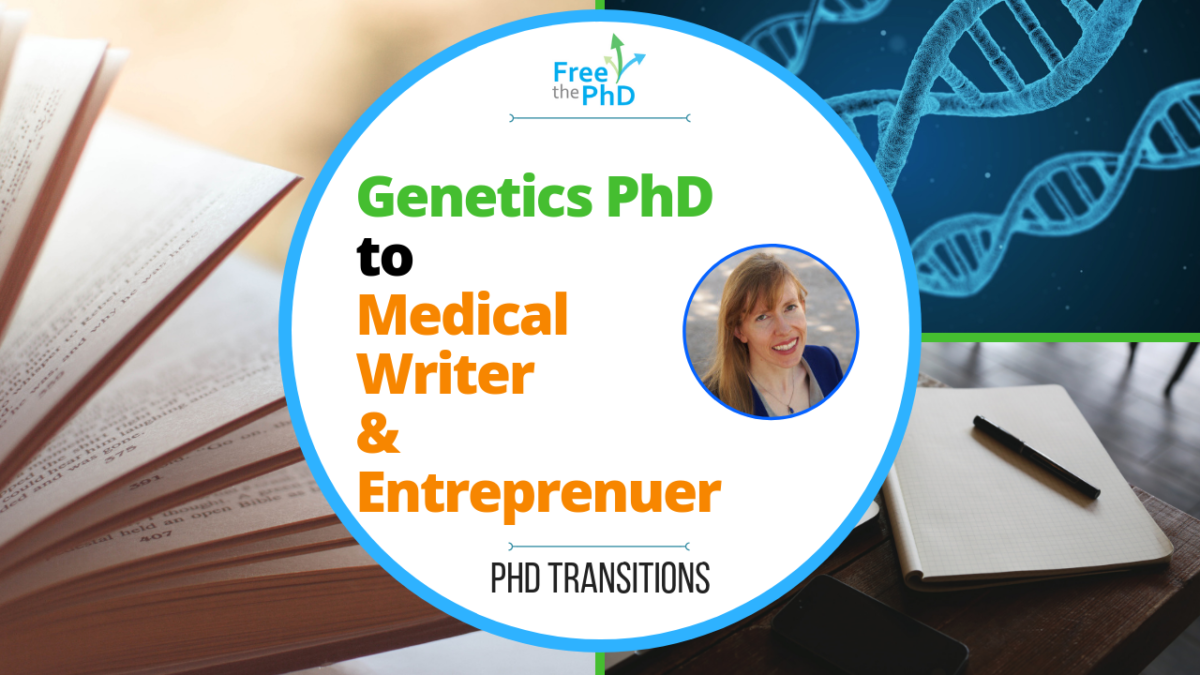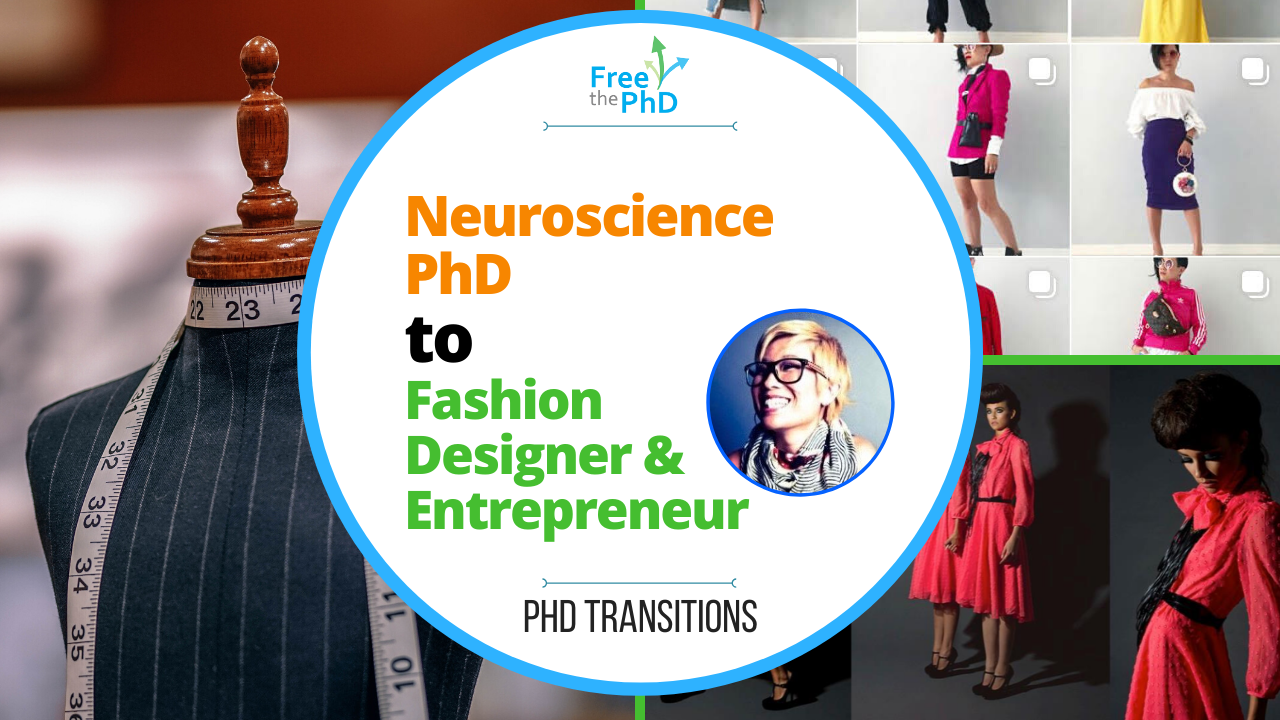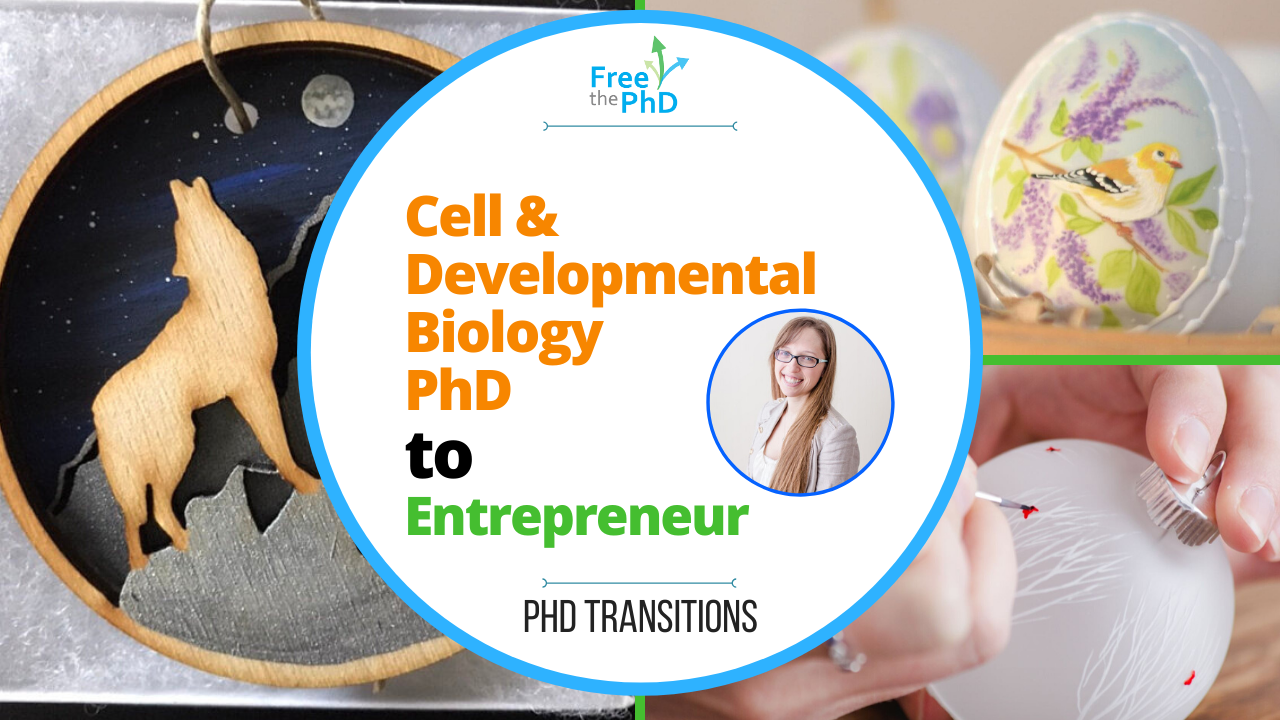Megan Garlapow is Owner and Principal at The Line Medical Communications. How did she leverage her research knowledge to venture into the world of medical writing? Let’s follow her on her journey!
Why did you decide to go to grad school?
I started falling in love with genetics in 8th grade and continued to do so throughout high school and college. I guess genetics was my true childhood sweetheart. In my undergrad, I started working with rats in a lab, and I had a really great experience. That lab experience solidified for me that I wanted to go to graduate school rather than medical school. Unfortunately, a dearth of information for students who wanted to pursue PhDs (rather than MDs) meant even less information was available about what one might even do with a PhD.
Still, after working for 2 years, I headed to North Carolina, feeling particularly excited about quantitative genetics. I think I was buoyed by some notion that I would go on to become a professor and showed up at grad school like so many first years, with bright eyes and a bushy tail.
What did you study?
In graduate school, I studied the genetic architecture underlying natural variation in feeding, using a mapping population and other genetic approaches in Drosophila melanogaster. In other words, I used fruit flies to try to better understand which genes have alleles that cause very high or very low amounts of food to be consumed.
When did you start to think about your next step, post-grad school? What options did you weigh, and what factors influenced your decision?
“I began to think about my next steps about one year before I defended. I was in the midst of selection experiments, which are notoriously brutal, spending frantic and frenetic 12 to 16 hours per day in the lab, 7 days per week. Our program had a little retreat in a nearby town one day, and to be able to attend, which I was required to do, I had arrived at the lab at 5:30 that morning to tend to my flies and experiments beforehand.
During the retreat, a faculty member expressed his admiration for how much I had been working, saying, “You’re ready to become a junior faculty member now!” By the end of the retreat, I was worried I wouldn’t make it back to the lab to pull my flies out of the fly room before the lights went out, and I was trying to express this anxiety to my colleague when I forgot the word “light.” I thought, “I’m not so sure I want to be doing this anymore.” But I didn’t want to go into drug sales or R&D, and I had no clue what else might be available. I had won teaching and mentorship awards and enjoyed those activities, so I thought maybe I should pursue a teaching faculty position. I just really didn’t know what to do and was so overwhelmed with experiments and dissertation writing that I didn’t have much time to consider what lay in the much broader world outside academia.”
What did you do next?
I next accepted a postdoctoral position at Arizona State University. Unfortunately, what had started as a subtle seed of discontent in academia a year before was a fully blooming dislike for remaining in the academic track. So I started speaking to EVERYONE and anyone about what they did for work, how they got into it, whether they liked it, etc. I was taking my daughter to a little soccer class near my home one night, and one of the moms said, “I have a neighbor who has a PhD in something science-y, is a mom, and used to be a bike racer [something I used to do]. I’ll introduce you.” I got coffee with this other woman who was (and still is) an established freelance medical writer. That coffee changed my life.
I had had no idea about medical writing, though I had always enjoyed writing and communicating (In first grade, I wrote and illustrated a book that I then tried aggressively to publish. It was about dinosaur bones and mystery. I still have it and read it to my daughter sometimes because it is hilarious). This established freelance medical writer needed a subcontractor, and she was willing to give me a try. She has since gone on to become a dear friend and incredible mentor, and that launched me. I dove into medical writing, medical communications, medical affairs until I had my own business built up enough that I could resign from my postdoctoral position.
What advice would you like to provide someone who has yet to make the leap out of academia?
I have known medical writers whose PhD research assessed insect mating behavior, plant biofuel production, the history of science, and dairy production. None of these amazing people got into medical writing by describing the minutiae of their research in their LinkedIn summaries. You don’t have to ask permission to present yourself successfully to the broader world, yet I see so many people in academia describing esoteric experiments, perhaps out of fear that they’ll be “caught” not adhering strictly to academic roles. Not a single one of my clients cares that I can work a pipette, but they do care a great deal about my broader skills understanding complexity and communicating it clearly and accurately.
What is the major problem you are solving in your current role?
When you are standing on top of a ski run looking down, a lot of competing, complex information is coming to you, and you have to choose the cleanest, clearest line through all that information and down the run. That’s why I named my company The Line Medical Communications, because I find the cleanest line through complex biomedical information. Beyond metaphor, I create publication plans and market strategies and write manuscripts, competitive intelligence reports, slide decks, white papers, marketing materials, news articles, and other deliverables for pharmaceutical/biotech/medical device companies, medical communications agencies, medical marketing agencies, medical organizations, and other groups and companies.
What kinds of roles do you think you are qualified for in the future, compared to before this step?
The rate of learning and growth has been intense, both because of the speed at which pharmaceutical companies operate and because I went straight into freelancing, in which my own success is entirely up to me [Someone once quipped that if you are really into self-improvement, then you should freelance because it accelerates self-improvement like nothing else]. Medical affairs, market strategy, competitive intelligence, and projects with much bigger, global vision have always been the most enjoyable for me, so I am really working that side of my business to see how far it can go. It certainly helps that I now have an extensive network to whom I can reach out for really, really large projects.
What advice would you give to fellow PhDs looking for jobs?
“Volunteer with professional organizations in the area in which you want to work. I volunteer with the American Medical Writers Association (AMWA). It’s given me a sense of community and is a great resource in and of itself. What’s more, it also indicates to the broader world that I am serious about this as a career. Say ‘hi’ to strangers and engage them in conversation. Don’t just say hi to people you think could help you in your career; rather, become practiced at engaging a wide array of people in your environment, and especially converse with people outside of academia. Saying ‘hi’ to strangers has so positively transformed my life.”
By Vay Cao, Ph.D.
Want answers to your own PhD career transition questions? Join us on the Free the PhD Community, where you’ll be in a safe, supportive environment and get personalized, no-nonsense job application edits, interview coaching, job talk pointers and career development advice, all for just $9/month. Think it’s too good to be true? PhDs ready to make a difference can make it happen! Check us out for free with no strings attached, for 1 week – See you there! #FreeThePhD




